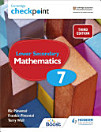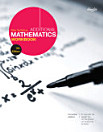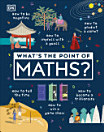Academic Language in Diverse Classrooms: Mathematics, Grades K–2: Promoting Content and Language Learning
About this ebook
If you’ve ever watched a student struggle with learning math concepts, you know that academic English can sometimes create stumbling blocks to understanding. To grasp complicated concepts, build skills, and demonstrate achievement, students need to master academic language in math.
The Common Core and ELD standards provide pathways to academic success through academic language. Using an integrated Curricular Framework, districts, schools and professional learning communities can:
- Design and implement thematic units for learning
- Draw from content and language standards to set targets for all students
- Examine standards-centered materials for academic language
- Collaborate in planning instruction and assessment within and across lessons
- Consider linguistic and cultural resources of the students
- Create differentiated content and language objectives
- Delve deeply into instructional strategies involving academic language
- Reflect on teaching and learning
Each grade-specific chapter models the types of interactions and learning experiences that help students master both math content and academic language. This essential book shows you why mastery of academic language is the key to students’ academic success.
"With growing numbers of English Language Learners in our classrooms, teachers need to be able to help students as they learn academic vocabulary and concepts. This series offers teachers a practical support, complete with abundant rubrics and detailed plans for teaching math vocabulary!"
—Renee Peoples, Teacher
Swain County Schools, Bryson City, NC
About the author
Margo Gottlieb, Ph.D., has been a bilingual teacher, coordinator, facilitator, consultant, and mentor across K-20 settings. Having worked with universities, organizations, governments, states, school districts, networks, and schools, Margo has co-constructed linguistic and culturally sustainable curriculum and reconceptualized classroom assessment, policy, and practice. As co-founder and lead developer of WIDA at the University of Wisconsin-Madison in 2003, Margo has helped design and contributed to all the editions of WIDA’s English and Spanish language development standards frameworks and their derivative products. She has been appointed to national and state advisory boards, served as a Fulbright Senior Scholar, and was honored by the TESOL International Association in 2016 for her significant contribution to the field. An avid traveler, Margo has enjoyed keynoting and presenting across the United States, territories, and 25 countries. Having authored, co-authored, or co-edited over 100 publications, including 22 books, Margo′s 3rd edition of Assessing Multilingual Learners: Bridges to Empowerment (2024) and Collaborative Assessment for Multilingual Learners and Teachers: Pathways to Partnerships (with A. Honigsfeld, 2025) are the latest additions to her Corwin compendium. In 2025, Margo was inducted into the Multilingual Education Hall of Fame.
Dr. Gisela Ernst-Slavit (PhD University of Florida) is a Professor Emerita at Washington State University with an active program of research. Dr. Ernst-Slavit is a native from Peru who grew up languaging in Spanish, German and English at school. She is the author, co-author, or co-editor of 12 books and over 100 articles and chapters, and she frequently speaks at regional, national, and international conferences on multilingual learner education, with a particular focus on teacher preparation for multilingual youth. Dr. Ernst-Slavit has served as President of the Washington Association for English to Speakers of Other Languages and as an officer in several professional organizations, including the American Educational Research Association, the Council of Anthropology and Education, and TESOL International Association.







